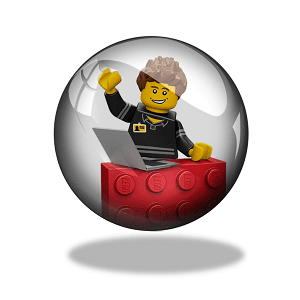All of the studies that I have seen on the future of work tend to conclude that, at a people level, lifelong continuous learning is going to be the way things are. But how will that work in practice?
Continuous learning is hard. It is a constant reminder that we are ‘not as good as we could be’, and while that is ‘an obvious given’ at the intellectual level, it is a psychological minefield at the subconscious level, particularly in the context of relationships.
Deep down, most of us know only too well at least one childhood experience of social awkwardness: wanting someone to like us, fearful that they won’t, and afraid of the potential social consequences that may result – and it is an experience we are keen not to repeat. We have learned the importance of confidence in approaching relationships and networking, and we have developed narratives, stories that we tell ourselves, sometimes literally, to create the illusion of that confidence – often so well that we don’t even realise that we are doing it.
But the marketeers know better. We are a culture that spends billions on identity-centric advertising – from perfumes, to watches, to cars – practically every aspirational purchase we make is premised on identifying with a character, a mindset, an icon, an image that hopefully changes our identity narrative – how we see ourselves; what we tell ourselves about ourselves; how self-confident we are; and how we overcome those nagging insecurities we developed in the playgrounds of our childhoods.
It is not actually the learning that we struggle with. It is the data that reveals that we have learning to do that bothers us.
At a conscious level, we accept the evidence that we need data to improve things. But the fact is, when we say we like feedback, we actually mean we like positive feedback.
Most of us, in most situations, tend to see negative feedback as criticism, even as judgement, of us by others. If we look carefully at our initial reactions (which we are usually able to supress before we reveal them to others, even sometimes to ourselves) we will spot hints of resentment: Our minds quickly highlight any unfairness to ourselves; we will reach for justification; we will question the basis of the feedback.
If we are honest with ourselves we will see that our emotions are triggered, and that we are having a little difficulty in seeing the data purely objectively. Simple acceptance that “it is simply what has resulted in the mind of that person, for whatever reason, and that the information is helpful to us if we want the result to be different” is not at the forefront of our minds.
And while we believe that we accept the logic that feedback data is ‘good’ for us, is that really true?
Dan Gilbert and two colleagues undertook a large scale psychological study of over 7000 people aged from 18 to 68 and looked at their perceptions of how much their values and personality were likely to change in the next 10 years versus how much they had changed in the past 10. The result was that the expected future change was a small proportion of the perceived historic change. They labelled this phenomenon ‘The end of history illusion’.
Gilbert et al concluded that basically, subconsciously, we tend to see ourselves as ‘finished goods’. Sure, we will have a better job, a bigger house, a track record, but its still basically ‘us’ right? At our core, we are still pretty much the same person, right?
The problem is that, if we subconciously believe that we are ‘pretty much there’, if we have no real vision for how we want to grow and develop as a human being, particularly in respect of how we treat others, then what use is the data?
If the feedback is positive, it pretty much tells us what we already know. But if it is negative, well then it could easily be wrong, or subjective, or political, or not properly taking things into account, or ….
And if it is negative, it could possibly be used against us. And if we take too much notice of it it could damage our self-confidence, and we know how important that is! And we have invested a lot of money in over-priced kit (marketing, extensive TV advertising and celebrity endorsement do not come cheap) to prove it.
Please bear in mind that a lot of what I am talking about here doesn’t take place in our conscious minds. At a conscious level, we only see glimpses of what I have laid out. But our subconscious reflects that, frankly, there is not much to gain, and there could be a lot to lose.
Let’s face it, why would our subconscious risk damage to the relational confidence that we have worked so hard, and paid so much, to develop, for the small chance of improving something that doesn’t need improving? It wouldn’t! So it finds its own subconscious ways of postponing, and procrastinating, and forgetting, in order to protect itself, to protect us, from something that, deep down, it knows won’t turn out well for us.
But, whatever our subconscious might have us believe, continuous lifelong learning is coming. To all of us.
And the fact is – those of us who do it better will get: the better opportunities’; the glowing references; the plum roles; and the big bucks. And the fact is also, as history proves time and again, data will be key to ‘better’.
So how do we fix this?
We believe that there are two main options highlighted by the picture above.
The first is to accept the fundamental truth that we are all ‘wonderfully made’. The petty cruelties we experienced from each other as children do not change that reality. We are all inherently valuable. However, accepting this simple truth may only be possible through a significant amount of soul searching, and even some professional help.
But such help and introspection isn’t a bad thing. Everybody can benefit from a skilled counsellor, and it could be the most worthwhile investment that we make. Building a deep self-confidence in ourselves, and seeing ourselves as we really are (for me, as God sees us) can be a deeply enriching and freeing experience.
The second is to break the ‘end of history illusion’. Set ourselves ambitious targets – a vision for how we want to develop our personality, our values, our character.
An interesting feature of the process that Gilbert et al’s adopted in their research is that they asked the backward review of half the group and the forward forecast of the other half. Why? Because they did not want to cross-contaminate the forecast perspectives with insight into past progress – they wanted to understand what happens at a default subconscious level.
So as we think about our vision, perhaps we could think about how far we have already come, and extrapolate from there. Build our confidence through considering the extent to which we already learn and grow effortlessly, and then build ourselves an ambition that is worthy of the conscious, data-driven, intelligent focus we are going to bring to bear on ourselves.
Our lives are an adventure. To those of us who are willing to explore ourselves, and our interactions with our surroundings, there is a rich source of insight and discovery that has unlimited potential to surprise us. If we engage with it on that basis, and take to heart Eleanor Roosevelt’s advocation that ‘it is never to late to become the person we might have been’ then the data we receive becomes the scenery of our journey and the waymarkers on our progress.
And our attitude to the data we receive as we seek to learn and grow is key. People cannot judge us, they can only judge themselves. They are are not in a position to know all of the factors in what we have done, the choices we have made, the context in which we acted, our background, our assumptions, our resources.
They are only qualified to know the impact that resulted on them. Impact that is a combination of: our actions; and theirs; of the surroundings; of other people; and of a myriad of other factors many of which are not entirely in our control.
However they choose to phrase this feedback, no matter how high-handed it may appear, is not relevant to the data – the data is only pertinent in respect of the impact that they perceived on themselves. ‘That was a total waste of time, you are pretty hopeless at this!’ simply means ‘I don’t believe that impacted me at all’, albeit expressed by somebody most likely lacking in empathy and self awareness.
But the impact that they perceived upon themselves is pertinent because we intended some impact upon them, and because their perception is likely self-fulfilling. The extent to which our intended impact is fulfilled is useful information to us as we seek to learn, to consider other strategies and options that are open to us, and to experiment with their effectiveness in achieving our aims. And the more objective we can be in how we handle this data, the faster we will learn to deliver the impact we intend, and the more competitive our position in the workplaces of the future.
And the difference, for many of us, is a simple shift in understanding about ourselves, and about those around us.
In Culturistics we do not presume to offer any particular psychological expertise in this space, but we do offer LEGO® SERIOUS PLAY® workshops for teams and individuals, and we advocate Inspirometer for automating feedback data.
LEGO® SERIOUS PLAY® (or LSP for short) works at the level of narrative and metaphor, and enables people to work with their own subconscious, and to develop visions and growth goals to which their subconscious can relate. The result provides a context in which feedback has (the right sort of) value, and can be used constructively to accelerate our learning and self-development.
Inspirometer is a brilliantly simple personal feedback tool which measures the impact and value ad generated for people in your meetings. You can get a free version here.
For more information, please contact us.
 Intuition is becoming more and more important as the world get more complex. And the time to respond gets ever shorter. It is increasingly difficult for rational decision making to take account of all the variables. Furthermore, those variables often change before the decision is complete.
Intuition is becoming more and more important as the world get more complex. And the time to respond gets ever shorter. It is increasingly difficult for rational decision making to take account of all the variables. Furthermore, those variables often change before the decision is complete.
 Cultural heuristics can also exist in the processes adopted to provide the context for this learning.
Cultural heuristics can also exist in the processes adopted to provide the context for this learning.



 To me, they reflect a sense of what the spirit of leadership is about. They are aspects of leadership beyond the purely rational, methodical, and structural. They resonate with bits of ourselves that we do not entirely understand. Bits of ourselves that speak to who we are. They provide meaning and energy. They make us human in a world of machines. They reflect the spirit of our existence. They are, in the truest sense of the word, spiritual.
To me, they reflect a sense of what the spirit of leadership is about. They are aspects of leadership beyond the purely rational, methodical, and structural. They resonate with bits of ourselves that we do not entirely understand. Bits of ourselves that speak to who we are. They provide meaning and energy. They make us human in a world of machines. They reflect the spirit of our existence. They are, in the truest sense of the word, spiritual. But as the world gets more complex and uncertain, our material approaches are increasingly insufficient to function effectively. Numbers no longer reflect the whole picture, and we are seeing business increasingly embrace qualities that talk to the human spirit - inclusion, diversity, love, ecology, conscience. The result is a workplace which is more conducive to us being fully ourselves. Better versions of ourselves where we bring our highest potential to enable the highest potential in others.
But as the world gets more complex and uncertain, our material approaches are increasingly insufficient to function effectively. Numbers no longer reflect the whole picture, and we are seeing business increasingly embrace qualities that talk to the human spirit - inclusion, diversity, love, ecology, conscience. The result is a workplace which is more conducive to us being fully ourselves. Better versions of ourselves where we bring our highest potential to enable the highest potential in others. Or we can embark on an adventure inside of ourselves, and access parts of us that machines can never replace. The quality of our spirit. A spirit that can face the complex and uncertain challenges of the future in a way that rationality and routine cannot.
Or we can embark on an adventure inside of ourselves, and access parts of us that machines can never replace. The quality of our spirit. A spirit that can face the complex and uncertain challenges of the future in a way that rationality and routine cannot. Over a period of 50 weeks, we have also built up a library of 'What ifs'. Many of them can be checked out in minutes. But if those initial steps into a new land inspire your sense of what might be, they can transform into opportunity, experience, and ultimately a key to something new within you.
Over a period of 50 weeks, we have also built up a library of 'What ifs'. Many of them can be checked out in minutes. But if those initial steps into a new land inspire your sense of what might be, they can transform into opportunity, experience, and ultimately a key to something new within you.